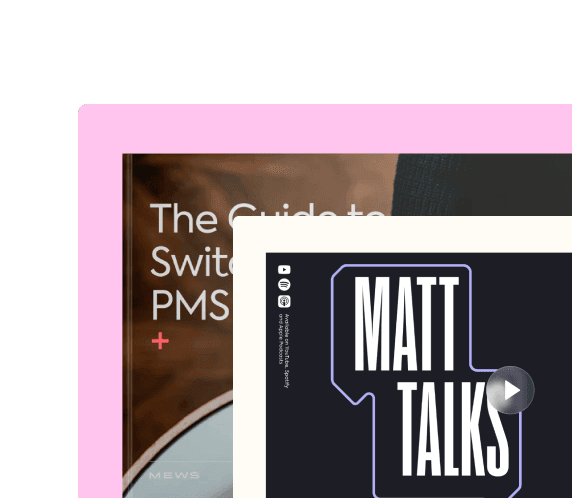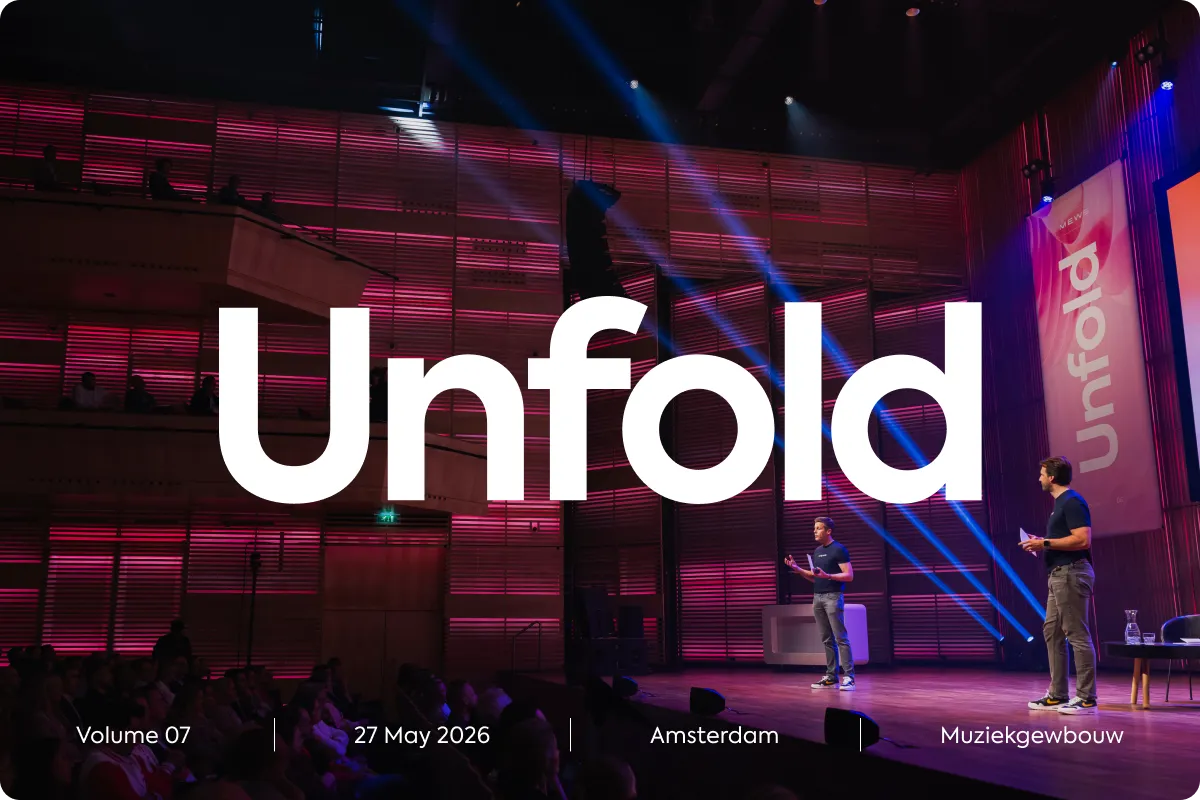Your shift at the hotel is over, it's time to head home and get some rest. The next morning, everything looks great as every room is booked. But then it hits you - there was more to gain. An event in town drove demand way up, and the rates were set to your standard (and low) prices. Revenue that could have been captured is now lost.
Imagine freeing yourself from manual rate changes, endless spreadsheets, and trying to predict the future. What if you could automatically set the right price, every time, to maximize bookings and boost revenue? That's at the core of what a Revenue Management System (RMS) does. Consider it your behind-the-scenes strategist, always working to get you the best rate at the right time.
What is a Revenue Management System for hotels?
An RMS automates and optimizes hotel room pricing, helping you maximize your property's revenue and occupancy. It crunches numbers, looks at historical data, market trends, and demand forecasts, and helps you set an optimal price.
Running a hotel requires quick decisions, and with an RMS like Atomize, a Mews company, you can make those decisions on the go. All it takes is access to the internet. Simply fetch real-time data and pricing suggestions wherever you are and adjust rates to stay competitive. It makes things easier and more efficient.
How does an RMS work?
An RMS acts as your pricing sidekick, using smart algorithms and data to help you set the best room price. It collects and processes all relevant data, giving you a clear pricing strategy without the need for guesswork, so you can focus on your guests. An RMS pulls information about:
- Historical booking trends
- Competitor pricing
- Market demand and local events
- Real-time booking patterns
- Customer behavior and segmentation
By analyzing all this, an RMS generates automated pricing recommendations that help you stay ahead of the competition and react quickly to changes in demand. Whether it's Christmas, a local conference, a Taylor Swift concert, or those unpredictable surges caused by flight cancellations.

Does RMS replace revenue managers?
Not at all. In fact, an RMS enables a revenue manager to save time on mundane tasks, work more efficiently, and be able to focus on the types of work that only a human can do.
In cases where you might not have the budget for a revenue manager, an RMS can step in to handle the heavy lifting. An RMS can't match the strategic insights and experience of a revenue manager, but when you're working with limited resources, it's a great way to manage pricing effectively without needing a full-time hire.
Effective revenue management strikes a balance between automation and human expertise - the technology (the RMS) handles complex data analysis and real-time pricing updates, while revenue managers provide oversight and tweak the system when needed.
In reality, the role of a revenue manager is shifting rather than being replaced. It's no longer just about room revenue - once an RMS provides the data, revenue managers can focus on the bigger picture.
- Before RMS: Revenue managers spend hours manually adjusting rates, analyzing reports, and reacting to changes.
- With RMS: Revenue managers can shift focus to strategic planning, diversifying revenue streams, and optimizing overall profitability.
What are the benefits of using revenue management software?
Many hotels still rely on manual pricing strategies and outdated reports, leading to missed opportunities. So if you're using an RMS, you're well-positioned to stand out from the crowd to win more guests and more revenue.
1. Increase revenue and profit
With one of the most powerful RMS features, dynamic pricing, your room rates adjust automatically based on demand. Instead of you having to manually adjust prices, an RMS updates rates in real time, maximizing revenue potential. For example, hotels using Atomize have seen up to 35% more Revenue per Available Room (RevPAR) and up to 37% higher Average Daily Rate (ADR).
2. Save time with automation
Let AI-driven algorithms free up your time - and mental bandwidth. With an RMS, revenue managers can spend less time on manual rate changes and more on high-impact strategies, from optimizing distribution to analyzing guest segments and refining promotions, all driving greater profits.
Here's just one example: by letting Atomize automatically set their room rates, Frimurarehotellet saves 20-30 hours monthly.
3. Be proactive with pricing and forecasting
Additional revenue opportunities are often missed if you or your revenue team are reacting rather than predicting. A Revenue Management System can factor in changing seasonal or specific demands, such as if there’s an event in your area, ensuring you stay ahead of the curve.
Machine learning tools can process huge amounts of historical data and accurately predict future trends, meaning there’s no last-minute panicking to adapt your prices because of an event you didn’t know about or a drop in competitor pricing.
4. Attract the right guests to unlock further revenue
Setting the right price means attracting the right kind of guest – one who’s going to bring in more revenue by maximizing ancillary sales. Create strategies based on guest profiles and you’ll be able to upsell more effectively with specialized, targeted packages and offers.
5. Collaborate with flexibility
As most Revenue Management Systems are cloud-based, it’s much easier for you and your team to collaborate and work with agility. If you need to pull reports or want to check pricing data, you should be able to do it from your phone, wherever you are.
Moreover, because an RMS is transparent with its data sets and pricing decisions, it’s easy for other departments and team members to gain a quick understanding of the pricing logic and revenue strategies you’re pursuing.
6. Stay ahead of the competition
The market never stops moving, and manual price adjustments can only do so much. No one can work 24/7, and while revenue managers need sleep, opportunities don't wait.
An RMS gives you real-time updates on competitor prices, local events, and market trends. With this information, you can adjust rates on the spot to stay competitive and attract more bookings. Instead of guessing, you can make confident pricing decisions that maximize revenue and keep occupancy high.
Get more tips from hospitality's big winners to maximize your profit - download our guide on How to Diversify Hotel Revenue.
Does your hotel need an RMS?
The short answer: if your hotel has more than 10 rooms and operates in a competitive area, you would benefit from an RMS. Of course, the benefits of the software vary depending on factors like property size, market dynamics, and operational complexity, but for an independent property, an RMS can make a tremendous difference.
If you're an independent hotel
Running an independent hotel often means wearing multiple hats. Pricing decisions might fall on the general manager or front desk staff, leaving little time for in-depth revenue management. An RMS takes that burden off your shoulders with:
- Real-time price optimization: An RMS continuously monitors market conditions and demand shifts, instantly adjusting prices to maximize revenue opportunities without delays.
- Automated pricing: Instead of you spending countless hours adjusting prices, an RMS dynamically adjusts rates based on demand, competitor pricing, and booking trends so pricing is always optimized.
- AI-Driven Insights: Even if you don't have a lot of historical data, AI helps you understand market trends and competitor behavior, giving smart, data-driven recommendations.
- Optimized distribution: An RMS helps you take control of your distribution channels, reducing reliance on costly Online Travel Agencies (OTAs) by optimizing pricing and availability across all platforms, so you keep more revenue.
- Cloud-based flexibility: You don't need a large upfront investment. A cloud-based RMS is affordable, flexible, and accessible from anywhere.
If you're a multi-property hotel chain or group
Running multiple hotels is already a puzzle, and keeping pricing sharp across locations and properties makes it even trickier. This is what you get from an RMS:
- Multi-property rate management: An RMS takes the guesswork out by handling rates in real time, making sure every property stays competitive without you having to micromanage every change.
- Centralized overview: Beyond pricing, an RMS gives you a bird's-eye view of how all your hotels are doing. You can spot trends, see which properties need attention, and tweak strategies to keep everything running smoothly.
- Easy teamwork on the cloud: Since it's all cloud-based, your revenue management teams can work together seamlessly, no matter where they are. They can track how each property is doing, spot trends, and make smarter decisions, all based on real-time data. Plus, with AI insights, they can adjust pricing strategies quickly and efficiently, keeping everything running smoothly.
- Always ahead of the competition: Instead of reacting to market changes, you stay one step ahead. The system keeps an eye on demand, competitor pricing, and booking patterns, adjusting rates on the spot so you never miss an opportunity at any of your properties.

How to choose the right RMS for your hotel?
If your RMS isn't delivering a measurable uplift, it's not doing its job. The right RMS should fit your hotel's size, market, and goals - helping you price smarter, sell better, and boost revenue without the guesswork. Here's what to look for.
1. Does your RMS integrate seamlessly with your existing tech stack?
A next-gen RMS should offer two-way integration with your PMS to pull real-time data on inventory, availability, and rate data while also factoring in customer profiles, past behaviors, and loyalty statuses. Atomize is now part of Mews, which means you only need one vendor for all your property and revenue management tasks.
"Simplicity is one of the main advantages of Atomize. We have saved huge amounts of time on the time-consuming and repetitive task of pricing. Automation and a simple user interface are allowing us to do more in less time," see what hoteliers are saying about Atomize on Hotel Tech Report.
2. What internal and external data sources does your RMS use?
Beyond the usual historical booking patterns, modern systems should incorporate real-time market signals - such as competitor pricing, guest reviews, online activity, local events, weather patterns, and even macroeconomic indicators like air travel demand. The more varied the data sources, the more optimized your pricing.
3. Is your RMS fully automated or does it require human oversight?
The best RMS can run on autopilot, adjusting rates in real time without manual work. But it should also give you the flexibility to step in when local insights or strategic decisions are needed - you should be able to choose. You get full control without the daily grind.
4. Does your RMS support real-time optimization?
Static pricing no longer works in the increasingly competitive market. Look for an RMS with dynamic pricing as a feature to make instant adjustments based on changing market conditions.
"Atomize turned out to be exactly the system we needed. It automatically collects and analyzes live internal and market data 24/7 for the next 365 days. This saves us about ten hours a week per hotel, which comes to fifty hours per week in total." - Chris Pedersen, CEO, Kronen Hotels
5. Can your RMS provide accurate forecasting?
Generalized forecasts won't cut it in 2025. Hotels need an RMS that can forecast demand down to the granular level, offering insights by specific room types, market segments, and distribution channels.
How to measure ROI in hotel revenue management?
A good RMS helps hotels squeeze the most out of every room by balancing occupancy, pricing, and the right mix of guests.
To measure the impact of an RMS, track RevPAR growth, booking pace, and occupancy trends before and after implementation. Hotels using Atomize typically see a 15-20% increase in the RevPAR Index annually, proving that real-time price optimization and automation lead to measurable gains.
For a deeper dive into the key metrics every revenue manager should track, check out our guide The New Era of Hospitality Metrics for Revenue Managers.
Where revenue management is headed
With guest behaviors changing, demand fluctuating, and the pressure to squeeze every bit of revenue, the old ways of managing hotel pricing and availability just don't cut it anymore. This changes revenue management, and you need smarter tools to stay ahead.
AI-driven systems like Atomize can predict demand, adjust prices in real time, and boost revenue across all areas of your business - from rooms to dining and events.
An RMS is no longer a standalone tool - it's part of the hospitality cloud, working alongside PMS and other hotel systems to improve operations and boost profits. As the hospitality industry evolves, an RMS will be at the heart of smarter, more strategic revenue management.
Why choose Atomize as your RMS?
Atomize is a leading RMS provider trusted by hotels worldwide. And since Atomize is now a part of Mews, you get a unified platform to streamline workflows and simplify decision-making.
Here's what you can gain with Atomize:
- Get up to 35% more RevPAR and 20% more ADR with features such as real-time price optimization, 24 months of pricing & forecasting and multi-property support.
- Save 20-30 hours a month per revenue manager with features such as autopilot, automated pricing controls and restriction management.
- Leave competitors in your trail by using Atomize's future demand insights, advanced forecasting and budgeting, integrated data sources and simplified data visualizations.
See how Atomize, a Mews company, takes the guesswork out of revenue management and gives you more time to focus on what really matters. Book a demo and experience what a truly powerful RMS can do.
For more insights on how revenue management software can help hotels of all sizes and boost their profits, check out a conversation between Mews CEO Matt Welle and Alexander Edstrom, the founder of Atomize RMS, a Mews company.
Written by

Kristina Liebute
Kristina turned her love of storytelling into a career, starting in journalism before crafting content at Mews. When she’s not writing, she’s reading books, and when she’s not reading, she’s wondering if listening to podcasts counts as productive.









